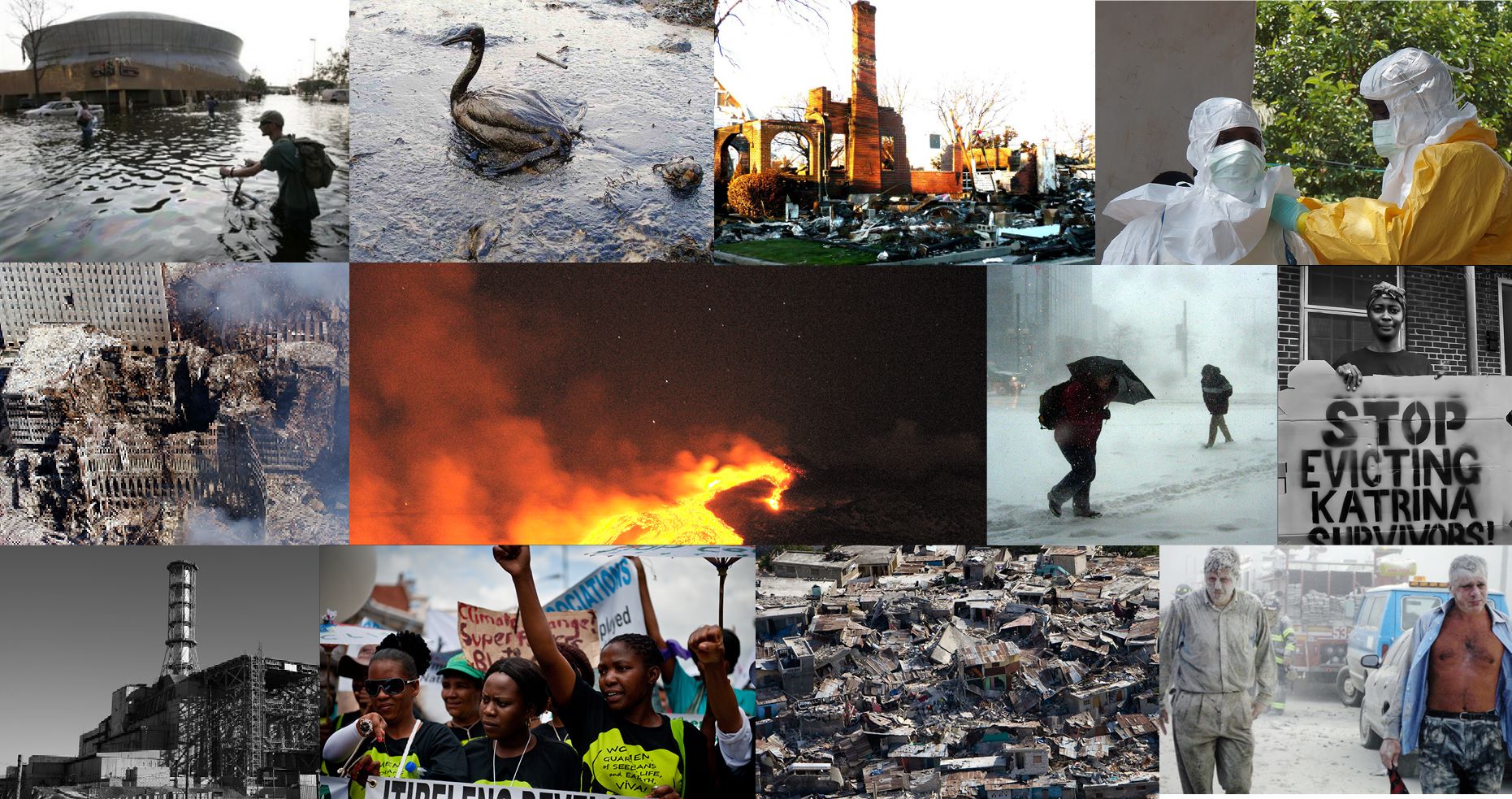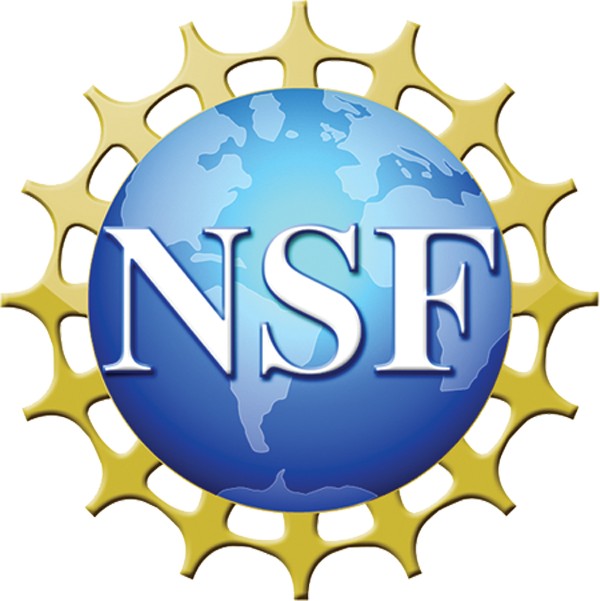The Natural Hazards Center at the University of Colorado Boulder is a national and increasingly global clearinghouse that collects and disseminates research findings and other information on the societal dimensions of hazards, disasters, and risk.
Research Projects
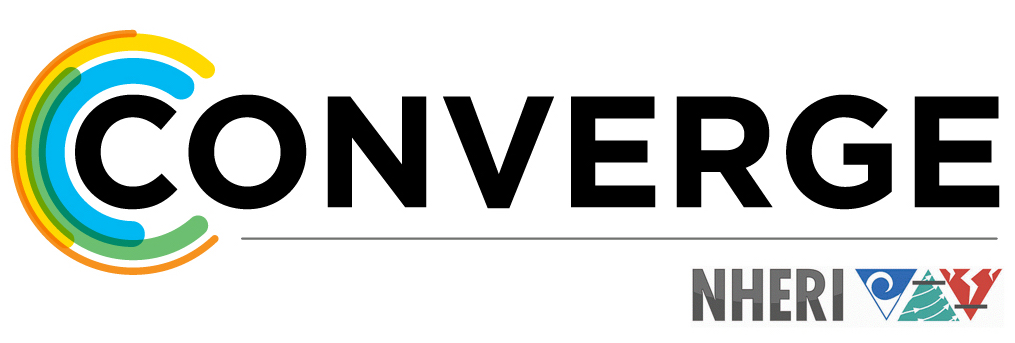
The CONVERGE Facility establishes and supports a new Extreme Events Reconnaissance Research Leadership Corps that connects researchers from different disciplines, develops best practice guidelines for reconnaissance research, and supports public communications in the event of a major disaster.
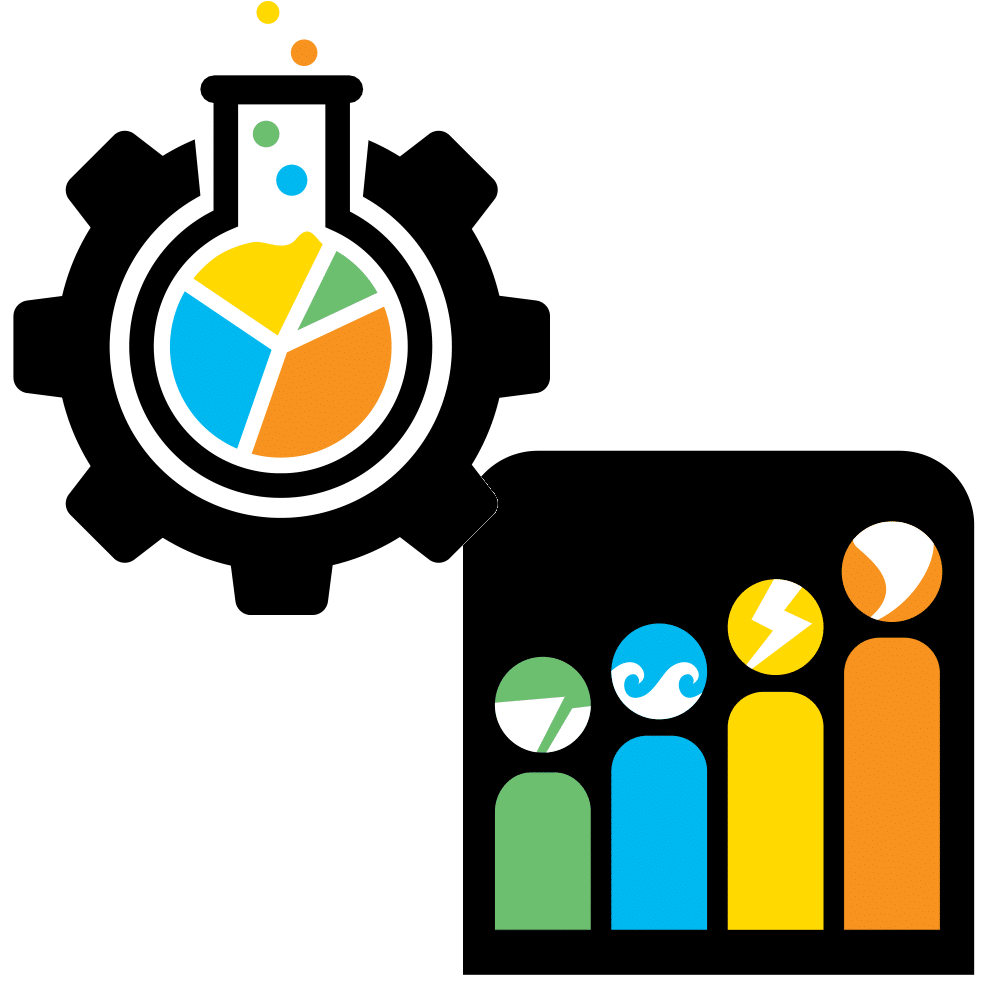
This project establishes a scientific platform and coordinating network for Social Science Extreme Events Research (SSEER) and a second platform and network for Interdisciplinary Science and Engineering Extreme Events Research (ISEEER). SSEER and ISEEER will draw upon insights from the science of team science (SciTS) and leverage databases and information resources available at the University of Colorado Boulder Natural Hazards Center to increase the capacity of the social science, engineering, and interdisciplinary hazards and disaster research communities. The ultimate vision for the work is to prepare individual researchers and teams to carry out extreme events rapid reconnaissance research that is coordinated, comprehensive, coherent, ethical, and scientifically rigorous.
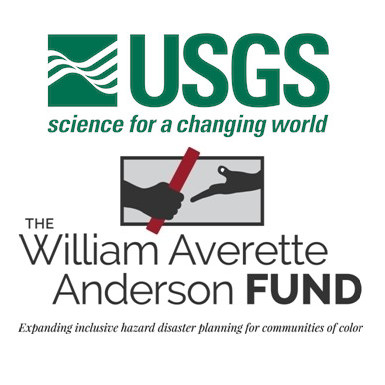
In collaboration with USGS, the Natural Hazards Center is leading an interdisciplinary team of six Bill Anderson Fund Fellows through an iterative process that leverages their unique insights, lived experiences, and commitment to addressing the disproportionate impacts of disasters in minority communities to support an inclusive engagement strategy for the HayWired scenario.

This project is funded by the National Oceanic and Atmospheric Administration (NOAA) and seeks to understand how populations with limited-English proficiency (LEP)—specifically Spanish, Chinese, and Vietnamese speakers—receive, perceive, and respond to emergency information about extreme weather events in Colorado. This study builds on the work of our Colorado Inclusive Language and Access in Emergency Alerts project by speaking directly with LEP populations and community-based organizations (CBOs) serving these populations.

Este proyecto está financiado por la Administración Nacional Oceánica y Atmosférica (NOAA; National Oceanic and Atmospheric Administration en inglés) e intenta comprender cómo las poblaciones con dominio limitado del inglés—específicamente hablantes de español, chino y vietnamita—reciben, perciben, y responden a la información de emergencia sobre eventos meteorológicos extremos en Colorado. Este estudio se construye sobre el trabajo de nuestro proyecto, Lenguaje inclusivo y acceso en las alertas de emergencia en Colorado (Colorado Inclusive Language and Access in Emergency Alerts en inglés) para hablar directamente con las poblaciones con dominio limitado de inglés y organizaciones comunitarias que atienden a estas poblaciones.
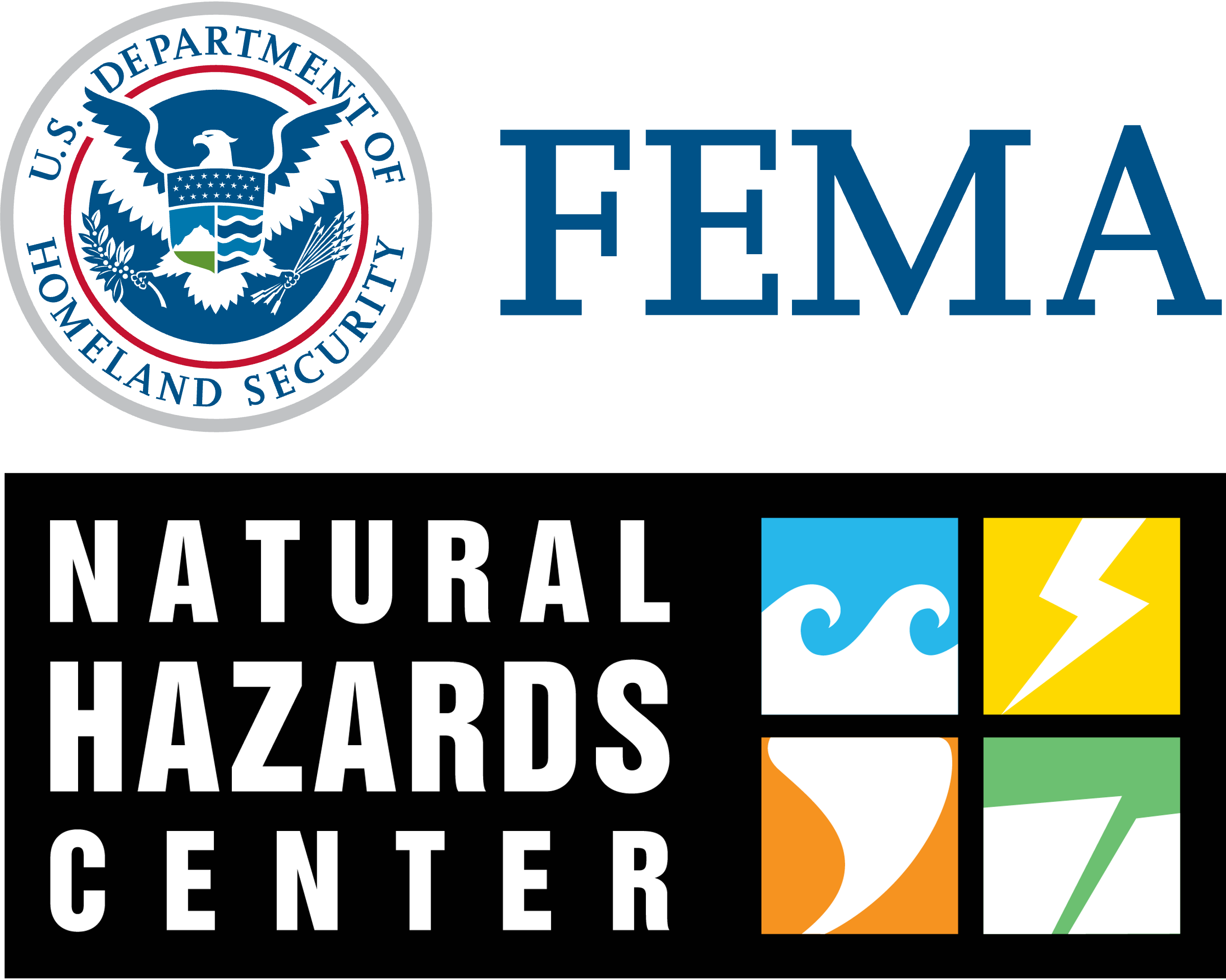
The Federal Emergency Management Agency (FEMA) has invested more than $1.4 billion in building safe rooms and has improved building design and construction to withstand wind hazards. Despite these advancements, significant gaps persist in understanding the use and effectiveness of these shelters from a human perspective. This project compiled and analyzed social science research and agency reports on the human aspects of sheltering during extreme wind events. It produced an annotated bibliography and a white paper which details the main findings and offers research-informed recommendations to improve shelter use and user experiences.

The U.S. Geological Survey has funded the Natural Hazards Center to conduct research that will assess the readiness, willingness, and ability of K-12 schools in Alaska, California, Oregon, and Washington to adapt their emergency plans to include Earthquake Early Warning Systems.
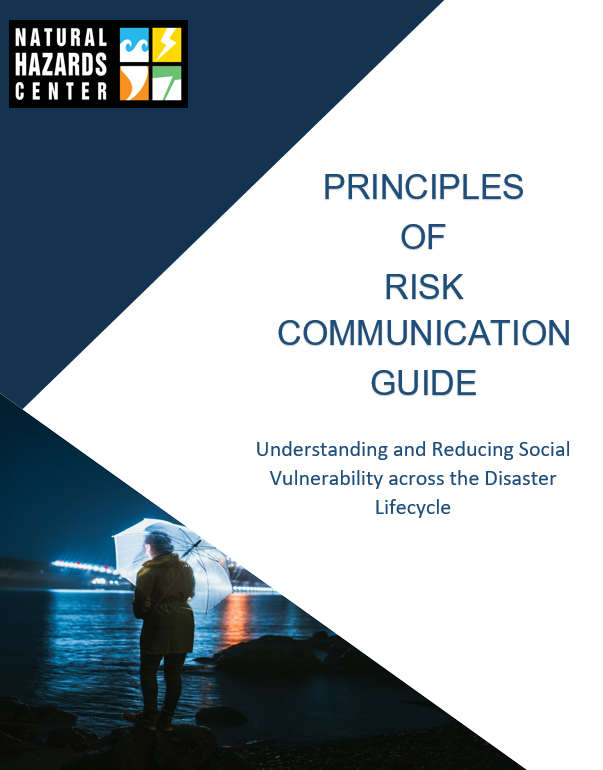
This project summarizes the state of knowledge about disaster risk communication in an annotated bibliography and synthesizes key concepts into a practitioner-oriented guidance document. These products are tailored to highlight concerns related to social vulnerability.

The U.S. Geological Survey National Landslide Hazard Program and the Natural Hazards Center have partnered to share resources and interdisciplinary expertise with counterparts in Puerto Rico for the development of landslide outreach materials. These will complement the scientific products being developed by the USGS landslide team and their partners at the University of Puerto Rico Mayagüez.
